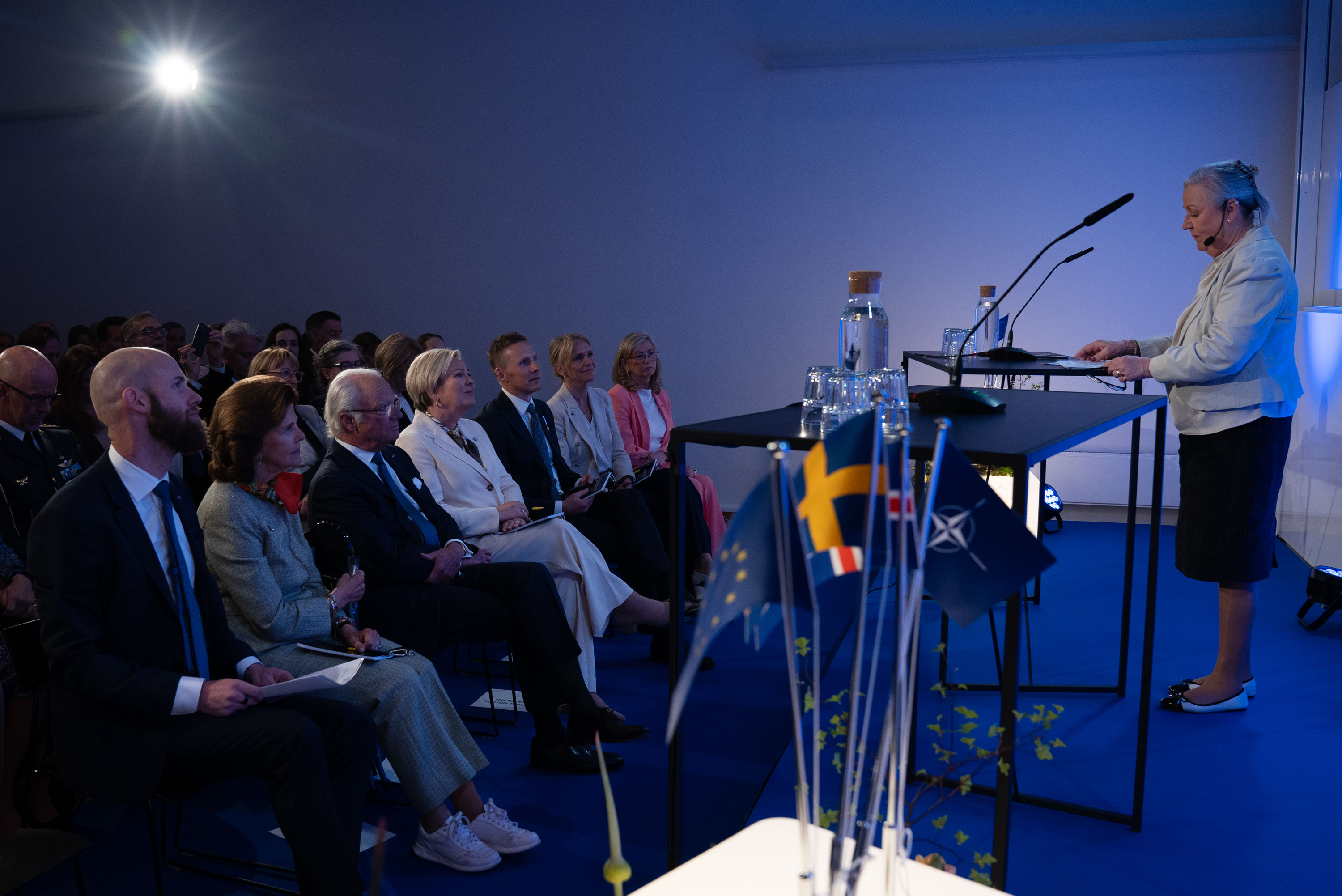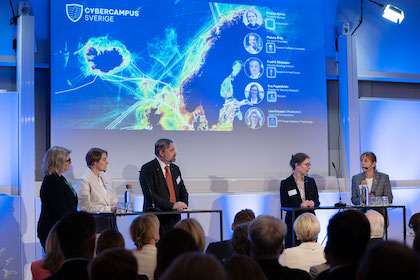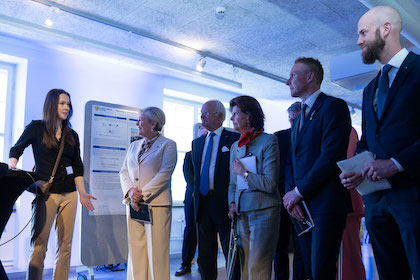Icelandic state visit

The Icelandic presidential couple, the Swedish royal couple, Icelandic Foreign Minister Þorgerður Katrín Gunnarsdóttir and Minister of Health Alma Möller, and Swedish Minister of Civil Defence Carl-Oskar Bohlin were part of the delegation that visited Cybercampus during the Icelandic state visit. The program included a panel discussion on digital resilience with participants from business, academia, government and civil society, as well as an exhibition with demonstrations of examples of results from work carried out in the Cybercampus Hacking lab, academic work by Icelandic academics on site in Sweden, and local start-ups in the cybersecurity field.
In his opening remarks to the delegation, KTH's President Anders Söderholm took the opportunity to share his own experiences from Iceland, where he spent time as an exchange student. Parts of the speech were given in Icelandic - a knowledge that seems to have been kept alive. In his speech, Minister of Civil Defence Carl-Oskar Bohlin spoke about the important place Cybercampus has in fulfilling the government's new national strategy for cybersecurity, and about the importance of business, authorities and academia working hand in hand in collaborating to actively strengthen our cybersecurity. The Minister also emphasized how strong cooperation between Sweden and Iceland on cybersecurity issues has already proven effective by winning NATO's cyber defense exercise Locked Shields last year with a Swedish-Icelandic team.

In a panel discussion on digital resilience, the delegation got to hear a discussion on how cybersecurity challenges require a holistic approach. It requires not only building stable and resilient infrastructure systems, but also raising the level of competence of all citizens and strengthening the ability to deal with threats through planning, preparation and practical training under stress. It was also highlighted the importance of all of us, within our respective fields, actively thinking through which parts of our operations can be open, where we share open data and information, and which information could lead to harm if it were to get out. It was discussed how Sweden has a lot to learn from Iceland, which, with its geographical and security policy location, has a different awareness of how vulnerable common systems can be.

In the exhibition part of the visit, the delegation was able to see a small part of the academic work carried out in the Cybercampus Hackinglab. Hjalmar Höglund and Agnes Ekman demonstrated how a security solution for children – a smart watch, which allows parents and children to communicate with each other in speech and writing – can be turned into a tool to cause harm by intercepting and distorting the communication between the participants. The delegation had follow-up questions about how to ethically handle found vulnerabilities, and were reassured by the description of how ethical hacking gives manufacturers plenty of time to address the found weaknesses.
Furthermore, the exhibition offered a presentation of the academic work carried out by a few of the Icelandic academics present in Sweden, and a demonstration from start-up companies in the cybersecurity industry – from secure, mobile communication networks to privacy and confidentiality protection for data processed by AI.
